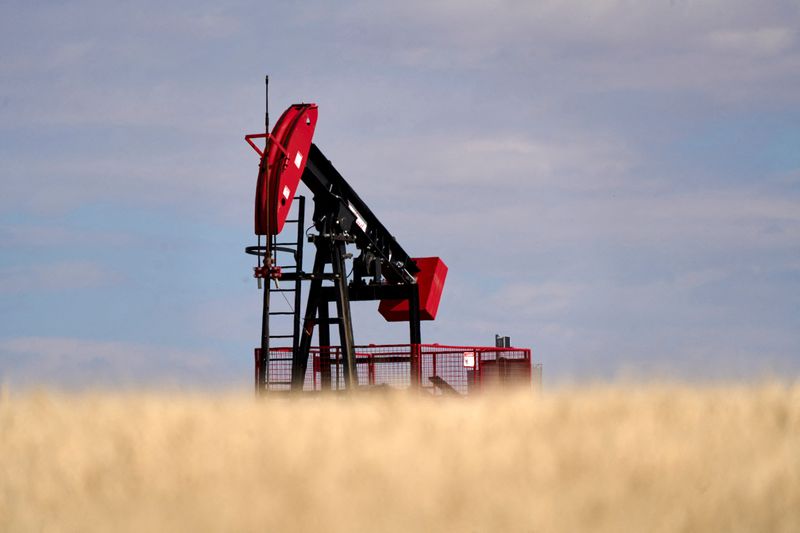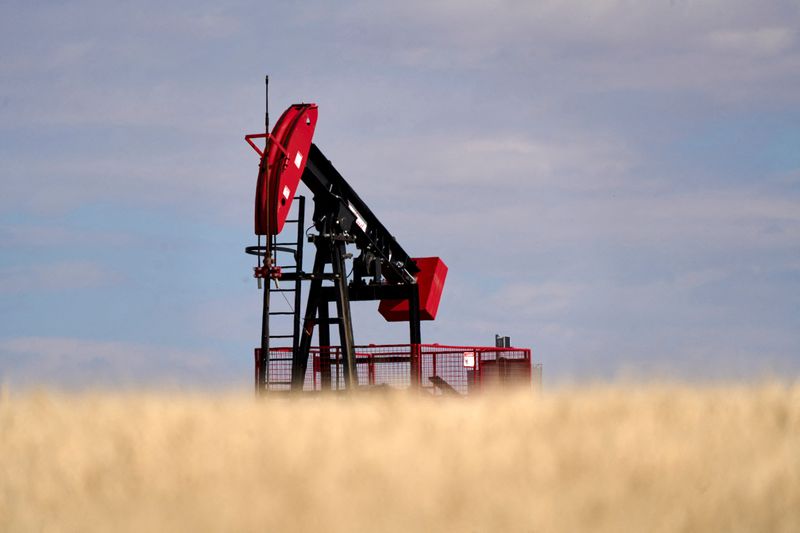
By Enes Tunagur
LONDON (Reuters) -Oil prices moved lower on Friday but remained on course for a fourth consecutive week of gains, as the latest U.S. sanctions on Russian energy trade heightened expectations for oil supply disruptions.
Brent crude futures were down 57 cents, or 0.70%, at $80.72 per barrel by 1433 GMT, having gained 1.15% this week.
U.S. West Texas Intermediate crude futures were down 44 cents, or 0.56%, at $78.24 a barrel, having climbed 2.13% for the week.
“The oil market is in a bit of a wait-and-see mode, to understand if there are any supply disruptions based on the latest U.S. sanctions versus Russia,” UBS analyst Giovanni Staunovo said.
Last week, the Biden administration unveiled broader sanctions targeting Russian oil producers and tankers.
Investors are also assessing potential implications of President-elect Donald Trump’s return to the White House on Monday. Trump’s pick for Treasury secretary said he was ready to impose tougher sanctions on Russian oil.
“While comments from Rubio and Bessent point in a direction of potential further sanctions impacting oil producers, market participants prefer to wait on what the next U.S. president will decide,” Staunovo said, referring to U.S. Senator Marco Rubio, who is Trump’s pick for U.S. secretary of state.
Also weighing on oil prices were expectations of a halt in attacks by Yemen’s Houthi militia on ships in the Red Sea in the wake of a Gaza ceasefire deal.
The Houthis’ attacks have disrupted global shipping, forcing ships to make longer and more expensive journeys around southern Africa for more than a year.
The Israeli cabinet is set to approve a deal with militant group Hamas for a ceasefire in Gaza, Prime Minister Benjamin Netanyahu’s office said on Friday.

Expectations for better demand lent some support to the oil market earlier on Friday. Data this week showed inflation easing in the U.S., the world’s biggest economy, bolstering hopes of interest rate cuts.
Traders are also assessing fresh data from China, the world’s top oil importer. Its economy fulfilled the government’s ambitions for 5% growth last year.
This post is originally published on INVESTING.





